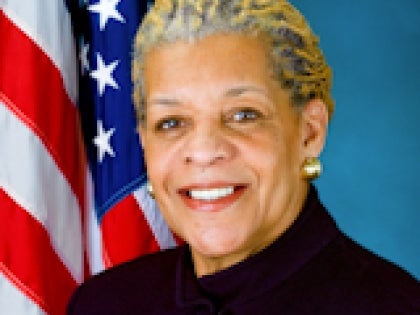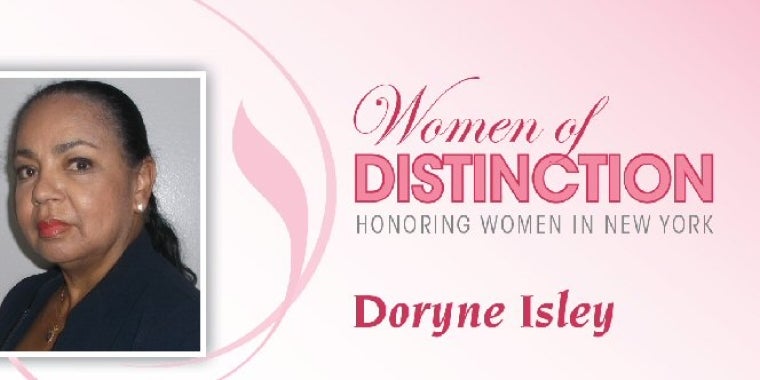
Senate Majority Holds Buffalo Hearing to Explore the Need for Reform of the Civil Legal Service System
Ruth Hassell-Thompson
December 16, 2009
-
ISSUE:
- Judiciary
(Buffalo-NY) -The New York State Senate today held the second in a series of hearings to determine the future of civil legal services in New York State. Senators Ruth Hassell-Thompson, Antoine Thompson and William Stachowski heard testimony from leaders of various legal, academic, business, government and community groups as well as individuals who rely on the availability of civil legal service providers and the funding they receive from the Interest On Lawyer Account Fund (IOLA) –which harnesses private funds, mainly bank interest paid on un-segregated attorney trust accounts to support services for needy New Yorkers.
Senators Ruth Hassell-Thompson and John L. Sampson, recognizing the need for reform of the civil legal service system, invited New Yorkers who have benefited from civil legal services to share with lawmakers and the public how crucial the services provided to them were to their quality of life. The hearing today focused on reforms that invest in families, women, children, the elderly, domestic violence victims, the disabled, tenants, homeowners and local government taxpayers. The goal is to consider broader reforms to ensure that the civil legal service system keeps faith with the promise of equal justice for all New Yorkers and to determine whether the current civil legal service funding and structure are equal to the needs of New York families and communities.
The moving testimony given by so many civil legal service recipients and providers today shows just how truly vital these services are to so many hardworking New Yorkers.
The IOLA Fund, in existence since 1983, is used as a means to provide additional financial support to civil legal service organizations. The money is used to provide legal representation to people in dire circumstances who are facing foreclosure actions, unemployment hearings, landlord tenant eviction proceedings, domestic violence, Social Security Disability, fair hearings and many other legal actions.
Unfortunately, due to the economic recession that has harshly hit New York State and low interest rates, the IOLA fund has experienced a dramatic loss of revenues. At this point, the Fund which distributed over $31 million for a 15 month grant cycle in 2008, will only have approximately $6.5 million to distribute for 2010 forcing providers to turn many people seeking help away.
Senator Ruth Hassell-Thompson, Chair of the Committee on Crime Victims, Crime and Correction and Conference Chairwoman said, “Unfortunately, the effects of the dwindling IOLA Fund are going to be felt very quickly throughout our communities. My colleagues and I will be working very hard with members of the civil legal service community to try to remedy this situation before it spirals out of control. Obviously, it is our duty as representatives to ensure that all New Yorkers receive equal access to quality representation and the IOLA Funding is critical to this process.”
Senate Majority Conference Leader John L. Sampson, Chair of the Judiciary Committee said, "The Senate Majority is working diligently to preserve the fundamental right to fair and affordable representation. The Senate is committed to securing sustainable funding for these vital services, especially in these difficult times."
Stephen Brooks, Esq., General Counsel of the IOLA Fund of the State of New York said, “On behalf of low-income New Yorkers who vitally need civil legal services, IOLA thanks Senators Hassell‐Thompson, Sampson, and all the Senators involved with hearings on IOLA and legal services funding, for their leadership in addressing the importance of ensuring access to justice for all New Yorkers. IOLA is also grateful for the pioneering decision of Chief Judge Jonathan Lippman to include funding for IOLA in the Judiciary’s budget. The funding that IOLA provides for programs that deliver civil legal assistance to New Yorkers is crucial, and we are confident that these hearings will rally support for this important issue.”
In addition to providing crucial assistance to New Yorkers at a time of need, civil legal services also provide the state economic benefits: The civil legal services program saves local governments money by helping to keep families facing foreclosure in their homes, and out of homeless shelters. It helps unemployed workers receive insurance benefits they’re entitled to, shrinking welfare rolls. And it helps disabled New Yorkers receive federal Social Security Disability benefits, bringing more tax dollars back from Washington and relieving the burden on state programs.
In addition, civil legal services saves money by making the court system operate more efficiently. It reduces the number of cash strapped individuals choosing to represent themselves who, due to their inexperience with the complexities of the law place an additional burden on an already overburdened civil and family justice system.
It was evident at today’s hearing from those who testified that the need for these services and for reform of the civil legal system to secure sustainable funding has never been greater.
The first of the series of hearings was held in Manhattan on December 9, 2009. An additional hearing will be held on Thursday, January 7, 2010 in Albany.
Additional Quotes:
Senator Antoine M. Thompson, Chair of the Environmental Conservation Committee said, "It is extremely important for the Senate to act quickly to restructure the IOLA Fund. Much of my district is made up of low income families and these families deserve equal representation. It is of the utmost importance that this issue is addressed before conditions worsen and low income families fall further behind."
Senator William T. Stachowski, Chair of the Commerce, Economic Development and Small Business Committee said, “Despite the serious fiscal issues facing the state, my Senate colleagues and I are working hard to preserve the IOLA Fund at sufficient levels. Whether it helps women seeking protection from abuse, mothers trying to obtain child support, families facing unlawful evictions or foreclosures that could leave them homeless, or senior citizens, veterans and others trying to obtain federal benefits for which they qualify, the fund provides quality legal assistance to those who otherwise would not be able to attain it.”
Robert Convissar, President, Erie County Bar Association said, "It is very, very important that the New York State Senate is taking a detailed and in depth look at the funding for these services that are so important for people who otherwise could not afford legal representation. The senators involved are doing the public a great service. Regular folks from all walks of life who struggle to support their families benefit from these legal services, which keep them off welfare rolls and give them support they need to help themselves.”
Anne Erickson, President of the Empire Justice Center said, “We applaud the Senate Majority for holding these hearings and bringing to light the incredible unmet need for civil legal services. As this Great Recession continues to take its toll, more New Yorkers than ever need legal assistance as they face job loss, foreclosures, evictions and economic dislocation. Many families are seeking assistance for the first time and by providing legal assistance we can help stabilize families and by extension help stabilize communities across the state. We look forward to working with the Senate, Assembly, Executive and Judiciary in the coming year to craft long-term solutions for adequately funding the legal services delivery system on a sustainable basis.”
Susan Schultz Laluk, President-Elect, Monroe County Bar Association said, "The MCBA encourages the Legislature to provide a more stable financing stream to meet the increased need for civil legal services in New York State. It's not just the right thing to do for our most vulnerable citizens, it's the smart thing to do and makes good economic sense."
Karen Nicolson, Chief Executive Officer, Legal Services for the Elderly, “Civil legal services programs in Buffalo, and around the state, are facing a historic reduction in funding next year, due to the loss of revenue in the IOLA Fund. This could not happen at a worse time, since during a recession more people fall into poverty and need our services. In a recession, more people need the services of a lawyer to defend against mortgage foreclosure, fight for their unemployment benefits and find protection from domestic violence and elder abuse. Unfortunately, since New York State does not have a dedicated and permanent source of funding for our services, our ability to help these people diminishes during a period of economic decline. I am pleased that the Senate recognizes the importance of a long term solution for funding civil legal services and look forward to welcoming them to Buffalo.”
Ken Perri, Executive Director, Legal Assistance of Western New York said, “Due to the shortfall in funding next year, Legal Assistance of Western New York will be unable to provide needed services for some 900 families. These families, facing foreclosure, unemployment and disability proceedings and other complex legal situations, are in need of skilled counsel and legal representation that they would not be able to obtain if not for the civil legal services program. The Senate hearings will further the effort to find sound, long-term funding for this critically important program.”
Bill Hawkes, Neighborhood Legal Services said, “Civil legal services like those provided by Neighborhood Legal Services are essential to the economic and legal lives of low income and disabled people, and many others. We represent people who are facing homelessness, who are facing domestic violence, inadequate housing conditions, insufficient food resources, who are uninsured, unemployed, elderly, and victims of consumer abuses. They rely on our attorneys and paralegals to represent them in matters that are essential to be resolved for the security of their households. When we face dramatic funding cuts like we are facing with IOLA funding, it’s not just the staff of Neighborhood Legal Services who are affected, but it’s the hundreds if not thousands of clients we will not be able to serve. Folks will be evicted and will not be able to put food on the table for their families. It is so essential to ensure that this safety net does not get further tattered by funding cuts. We are already unable to serve the majority of those who need help. Taking more resources away at this time of economic crisis will be catastrophic for too many New Yorkers.”
Lew Papenfuse, Executive Director of Farmworker Legal Services of NY, Inc. said, “Farmworker Legal Services of New York, Inc (FLSNY) has survived for over twenty-five years largely in part because of the strong support of the IOLA Fund of New York. The people we represent are among the most invisible and disenfranchised. They live in extreme poverty, often without food, clothing and adequate housing. IOLA funds make it possible for us to insure that they receive wages that they earned, habitable housing and a safe workplace. Any reduction in funding severely impacts our ability to reach and serve this vulnerable population.”
Carla Palumbo, Legal Aid Society of Rochester, and member of Rochester City Council said, “As a legal service attorney for 25 years, the director of the program and an elected official, when I look at funding for legal services I see it as a win-win. From a client’s perspective, people in a crisis situation need access to counsel, access to the court system, and access to the kind of services we provide to make sure their rights are protected. From the government’s perspective, when you don’t provide those services, we see an economic impact from an individual’s inability to get out of a bad situation. Homelessness increases, domestic violence increases, the number of people who don’t get child support increases. All those things are stressers on local governments, and in turn on the state's taxpayers. I know in government you have to make choices, and this is the right choice - it helps people and it helps government in hard economic times.”
###
Share this Article or Press Release
Newsroom
Go to NewsroomDouglas Condit, Jr.
May 20, 2016

Doryne Isley
May 11, 2016

Earth Day 2016 Poster Contest: District 36
April 14, 2016

Calvin Parker
May 19, 2015
